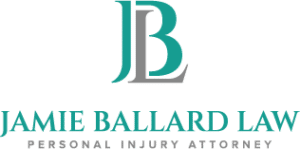Understanding Discovery in Atlanta Personal Injury Cases
When you’re involved in a personal injury case, the term “Discovery” can often come up, leaving many unsure of its implications. Discovery is a important phase in the legal process that allows both parties to gather helpful information before going to trial. This article will elucidate the concept of Discovery in the context of Atlanta accident cases, aiming to provide you with the knowledge you need to navigate your legal journey.
What is Discovery?
Discovery is a pre-trial procedure where both the plaintiff and the defendant exchange pertinent information about the case. This phase is indispensable, as it helps both sides understand the facts, gather evidence, and prepare their arguments more effectively. Discovery includes several methods such as interrogatories, depositions, requests for production of documents, and requests for admissions.
Methods of Discovery
- Interrogatories: Written questions that one party sends to the other, requiring written answers under oath.
- Depositions: Sworn, out-of-court testimonies where attorneys from both sides ask questions. Depositions are usually recorded and can be used in court if necessary.
- Requests for Production: Requests for specific documents, records, or physical evidence related to the case.
- Requests for Admissions: Written requests asking the other party to admit or deny specific facts of the case under oath.
Importance of Discovery in Atlanta Accident Cases
In Atlanta, as in other jurisdictions, Discovery is a pivotal process that can significantly affect the outcome of a personal injury case. Information gathered during Discovery can make or break a case, influencing settlement discussions and trial strategies. For instance, obtaining medical records and accident reports can provide undeniable proof of injury and fault.
Relevant Laws Governing Discovery in Georgia
Discovery in Georgia is governed by the Georgia Code Title 9 – Civil Practice. The code stipulates the rules and procedures for conducting Discovery, ensuring a fair and transparent legal process. It’s helpful to adhere to these laws carefully to avoid potential pitfalls, such as sanctions for non-compliance.
Frequently Asked Questions (FAQ)
| Question | Answer |
|---|---|
| What is the purpose of Discovery? | Discovery aims to facilitate the exchange of information between parties, helping both sides gather evidence and plan their strategies. |
| How long does the Discovery process take? | The length of the Discovery process can vary, but it typically lasts several months depending on the complexity of the case. |
| Can Discovery be conducted without an attorney? | While it is possible, having an attorney can ensure that the process is completed correctly and effectively. |
| What happens if a party refuses to comply with Discovery? | Non-compliance can result in sanctions, fines, or even dismissal of the case. |
Local Resources in Atlanta for Accident Victims
Navigating the aftermath of an accident can be overwhelming. Here are some local resources in Atlanta that can provide assistance:
| Resource | Contact Information |
|---|---|
| Grady Memorial Hospital | 80 Jesse Hill Jr Dr SE, Atlanta, GA 30303, Visit Website |
| Atlanta Police Department | 226 Peachtree St SW, Atlanta, GA 30303, Visit Website |
| Georgia Legal Aid | Visit Website |
How Jamie Ballard Can Help You with Discovery
Jamie Ballard has extensive experience in handling personal injury cases in Atlanta, making her well-versed in the intricacies of the Discovery process. Her legal acumen ensures that all Discovery procedures are followed accurately, allowing you to build a robust case.
Whether it’s sending interrogatories, scheduling depositions, or requesting critical documents, Jamie Ballard can manage these tasks efficiently, providing you peace of mind. Her compassionate approach ensures that you feel supported every step of the way.
If you need professional legal assistance, contact Jamie Ballard at 3715 Northside Pkwy NW Building 100 – Suite 500, Atlanta, GA 30327, or call 404-885-8544. Visit her website at jamieballardlaw.com for more information.

